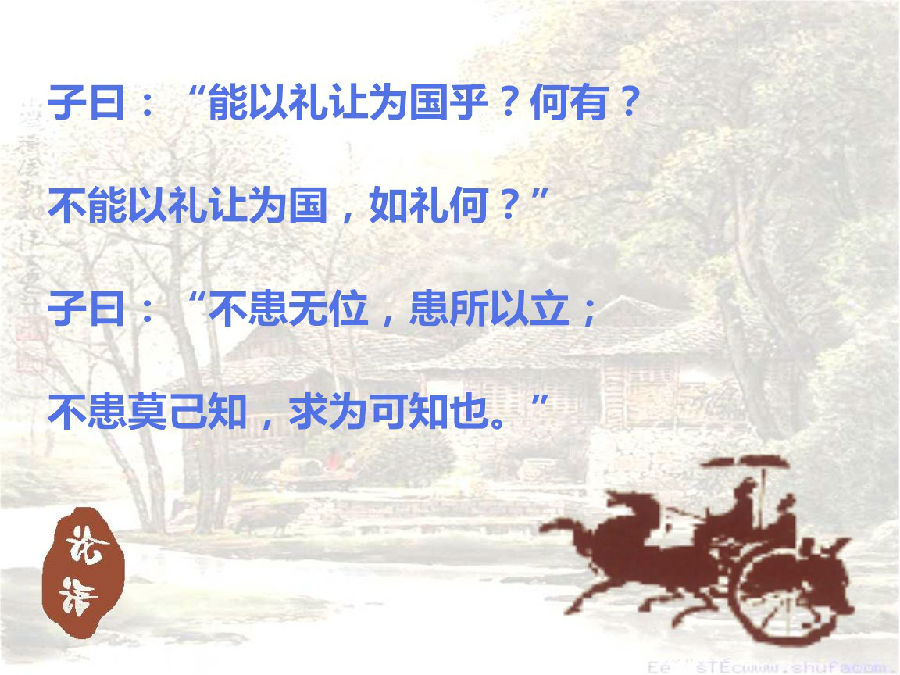The Master said, "If a prince is able to govern his kingdom with the complaisance proper to the rules of propriety, what difficulty will he have?
子曰:“能以礼让为国乎?何有?
If he cannot govern it with that complaisance, what has he to do with the rules of propriety?"
不能以礼让为国,如礼何?”
The Master said, "A man should say, I am not concerned that I have no place, I am concerned how I may fit myself for one.
子曰:“不患无位,患所以立;
I am not concerned that I am not known, I seek to be worthy to be known."
不患莫己知,求为可知也。”
The Master said, "Shan, my doctrine is that of an all-pervading unity."
子曰:“参乎!吾道一以贯之。”
The disciple Tsang replied, "Yes."
曾子曰:“唯。”

The Master went out, and the other disciples asked, saying, "What do his words mean?"
子出,门人问曰:“何谓也?”
Tsang said, "The doctrine of our master is to be true to the principles-of our nature and the benevolent exercise of them to others, this and nothing more."
曾子曰:“夫子之道,忠恕而已矣。”
The Master said, "The mind of the superior man is conversant with righteousness; the mind of the mean man is conversant with gain."
子曰:“君子喻于义,小人喻于利。”
The Master said, "When we see men of worth, we should think of equaling them;
子曰:“见贤思齐焉,
when we see men of a contrary character, we should turn inwards and examine ourselves."
见不贤而内自省也。”


